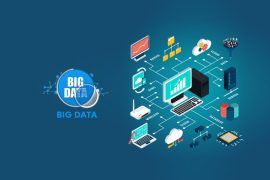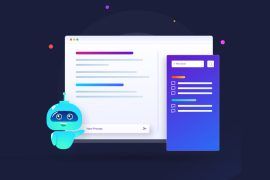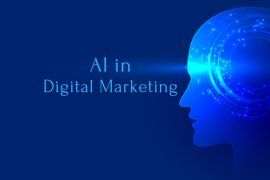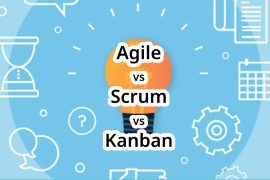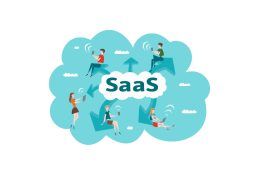Artificial Intelligence (AI) assumes the responsibility for different aspects of content creation in the present-day marketing world. Companies increasingly depend on AI to create content tailored to the target market, effectively engaging and increasing conversions. The content produced by AI can vary from Facebook posts to email subject lines, blog content, and product descriptions. There are many AI tools on the market; marketers may need help to pick the best one for their requirements. This article will examine the most popular kinds of AI-generated material companies employ in marketing. This article will present new data with real-world examples and suggestions on using these tools to benefit your company. Let’s get going.
Table of Contents
What is AI-generated content?
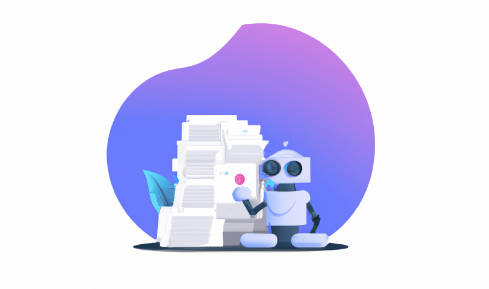
AI-generated content refers to written or visually-generated content created with artificial intelligence. The type of content produced by algorithms that analyze data, detect patterns and deliver content using pre-programmed rules or a set of learned data. AI-generated content comes in various types, such as blogs, product descriptions, social media updates, ad copy, or even video material.
The purpose of AI-generated content is to conserve time and money while making high-quality, engaging content that is a hit with consumers. Although machines produce the material, they can often replicate human writing styles, tones, and tones, making it difficult for users to differentiate between content written by humans and machines.
AI-generated content is increasingly sought-after within the advertising and marketing sector due to its efficacy scale, flexibility, and capability to produce personalized content for clients.
How does AI-generated content work?
AI-generated content employs algorithms for machine learning to study massive amounts of information and create content based on previously-programmed rules or patterns. The process starts by introducing data, for example, keywords, subjects, or any other relevant information to your desired output. Machine learning algorithms analyze the information and produce the content using pre-programmed rules such as sentences, grammar rules, and word selections. The machine learning algorithm also gains knowledge from past examples of writing text, which improves its capability to produce content that sounds natural and is suited for a particular target audience.
An example is that an algorithm might analyze a company’s past blog posts to determine the most popular themes, keywords, and writing styles. From this data, the algorithm can create fresh blog posts similar to the fashion and tone, with original content designed to appeal to a particular target audience or subject.
The AI-generated content is customizable according to the requirements of an organization by adjusting tone, voice, and many other aspects to make sure that the content is in line with the brand’s image and messages. It results in top-quality and entertaining content that is made much quicker than the traditional method of creating content. Though AI-generated content might be more effective and might need some editing by humans, it is now a crucial tool for companies seeking to produce efficient, high-quality content.
Top 5 AI-generated Content for Online Marketing and Advertising in 2023
1. Innovating Image Creation
Of the various uses of AI in the marketing field, the creation of images has been identified as an essential aspect, and 36% of marketing professionals agree with the value of it. The impact of attractive ideas is unquestionable. The incorporation of AI can take this a step further. How? Let’s delve deeper. In the beginning, AI eliminates the complexities of making high-quality photos. Instruments such as Generative Adversarial Networks (GANs) create original images by starting from scratch using the information provided. The technology can create multiple concepts with different colors, styles, and dimensions, giving marketers many possibilities. A further advantage of AI for image-making is its ability to improve existing photos. AI algorithms can automatically increase the resolution of images, alter the lighting level, and even optimize color and brightness. AI technology is so sophisticated that it can identify undesirable elements in photographs or even add them to additional ones, thereby increasing their aesthetic appeal.
In addition, AI assists in creating customized visual content, which is essential in driving the engagement rate. Utilizing deep learning, AI tools can analyze behavior patterns and preferences, creating images that connect with specific demographics or segmentation. This personalization feature will significantly boost click-through rate and conversion, which makes the material more appealing. Within the realm of SEO, AI-generated photos could play a significant role. Search engines such as Google favor websites with authentic photographs of top quality and high quality, thus influencing the rankings of search engines positively.
Through AI, it is possible to create genuine images to be made and manipulated, but they can also be optimized to improve SEO. AI tools can automatically generate alt-text on images, a crucial element of SEO, based on the picture’s content and context.
2. Boosting Blog Posts
A third of all marketing professionals have begun to recognize the importance of AI in redefining blogging post-writing. AI streamlines the various processes involved with the process and drives the efficiency of content, and provides a more personalized experience, both of which are essential to the success of a content marketing plan. The efficiency of AI automatizes tasks, significantly improving the effectiveness of generating content. This is especially evident in topic creation, research, writing, and SEO optimization. Artificial intelligence-powered tools for content can create an idea for blog topics based on current trends, top search terms, and the audience’s interests.
They eliminate the lengthy planning task of developing ideas, ensuring you always get relevant, interesting, and engaging topics. For research purposes, AI can trawl through thousands of websites in a fraction of the time required by an individual human. AI can gather extensive data, references, and other information that can be included in your blog post, saving you time and energy. Drafting can even be made faster by using AI. When a topic has been selected and the research has been completed, AI content generators can produce a structured draft creating a solid foundation for writers can work. Additionally, SEO optimization – an essential element for web exposure – is now a manual task that is complex and laborious.
AI instruments can suggest optimal keyword phrases, produce relevant headlines that meet SEO standards, and analyze the content to ensure it’s optimized for search engines. Marketing professionals can focus on delivering engaging and relevant articles, knowing that the appropriate people will come across their blog.
3. Revitalising Product Descriptions
Half of the marketers who have harnessed and tapped into the effectiveness of generative AI, the technology has evolved into an integral tool when it comes to the creation of descriptions of products. This is one of the primary applications of AI in the field of content marketing. It is because of the routine nature and the need for diverse, creative, and engaging words.
AI tools help marketers describe a product’s capabilities and functions efficiently. When explaining what a product can do and the benefits it offers prospective buyers, AI can streamline this procedure while maintaining a high quality of information. As an example, AI can automatically generate descriptions that highlight the most important specifications of a product and unique selling points, improving the clarity of the text.
More important is the capability of AI to adapt the descriptions according to the understanding and level of the people. Artificial intelligence systems can analyze demographic information and user behavior and recognize the patterns of consumption by users. This way, it is possible to create product descriptions that are precise, thorough, precise, and with an appropriate tone and style that resonates with customers.
4. Enhancing Ebooks
AI’s capability to recognize and create complex languages continuously expands, opening doors to the advanced creation of content. The ability to learn and develop will significantly help make ebooks, particularly in ensuring a consistent tone and design across all longer-form material.
There are concerns about the legitimacy of AI-generated content currently being dealt with by the continuous creation of AI platforms designed to replicate human creativity and innovative thinking. Thanks to AI, creative, original, and thought-provoking material that entices readers is becoming more feasible.
In terms of legality, while using AI used in ebooks published by publishers must be appropriately managed. It is true that AI has pushed the boundaries and promoted new ideas regarding authorship and creativity. It is a fascinating advancement in the development of ebooks.
5. Optimising Landing Pages
In digital marketing, websites are an essential interface between the business and its prospective customers. Making sure landing pages are perfect could significantly affect sales conversion rates. AI has played a vital role in achieving this goal for more than five percent of marketers.
A/B testing: enhancing page Design and Layout A crucial technique that AI can be useful is the A/B test, which allows marketers to find the most appealing layout and design. A/B testing involves showing two distinct versions of the form for landing pages for two different audiences and assessing which is more effective regarding desired metrics, such as the percentage of conversions, the amount of time on the site, and click-through rates.
AI greatly simplifies the A/B testing procedure. It can create several versions of landing pages with slight differences in components like headlines, call-to-action pictures, or form fields. The system can continuously track the effectiveness of these iterations to select the best version more quickly than is humanly feasible. What will result? A landing page is more likely to draw users’ attention and motivate them to take more action, leading to more significant percentages of conversion rates.
Conclusion
AI-generated content is often informative or informative and can even be entertaining. This is a great way to avoid writer’s block and save time and money. Remembering that AI-generated content is a primary cause of the blocks is crucial. It’s your responsibility to ensure that the material you create with artificial intelligence is not just “original” and “helpful” but also honest, accurate, and in line with your values as a brand. The most important thing is to alter your AI-generated content to reflect your company’s distinctive voice. Highlight the important points you want to communicate and communicate with your target audience in the way you’d like.
Also Read
Diving Deeper: Exploring the Various Types of AI
Navigating the Cloud: The Ultimate Guide to File Sharing Services

